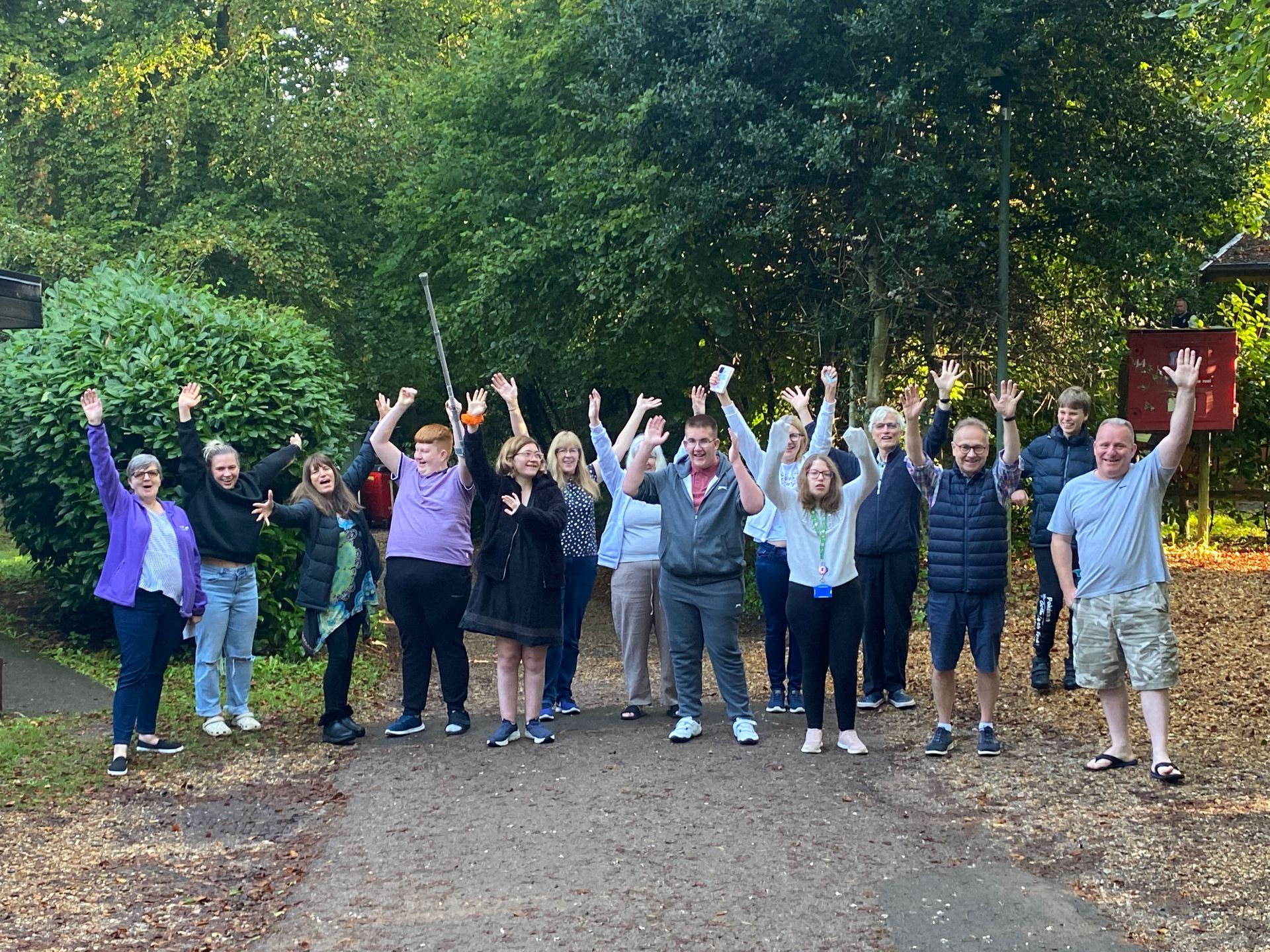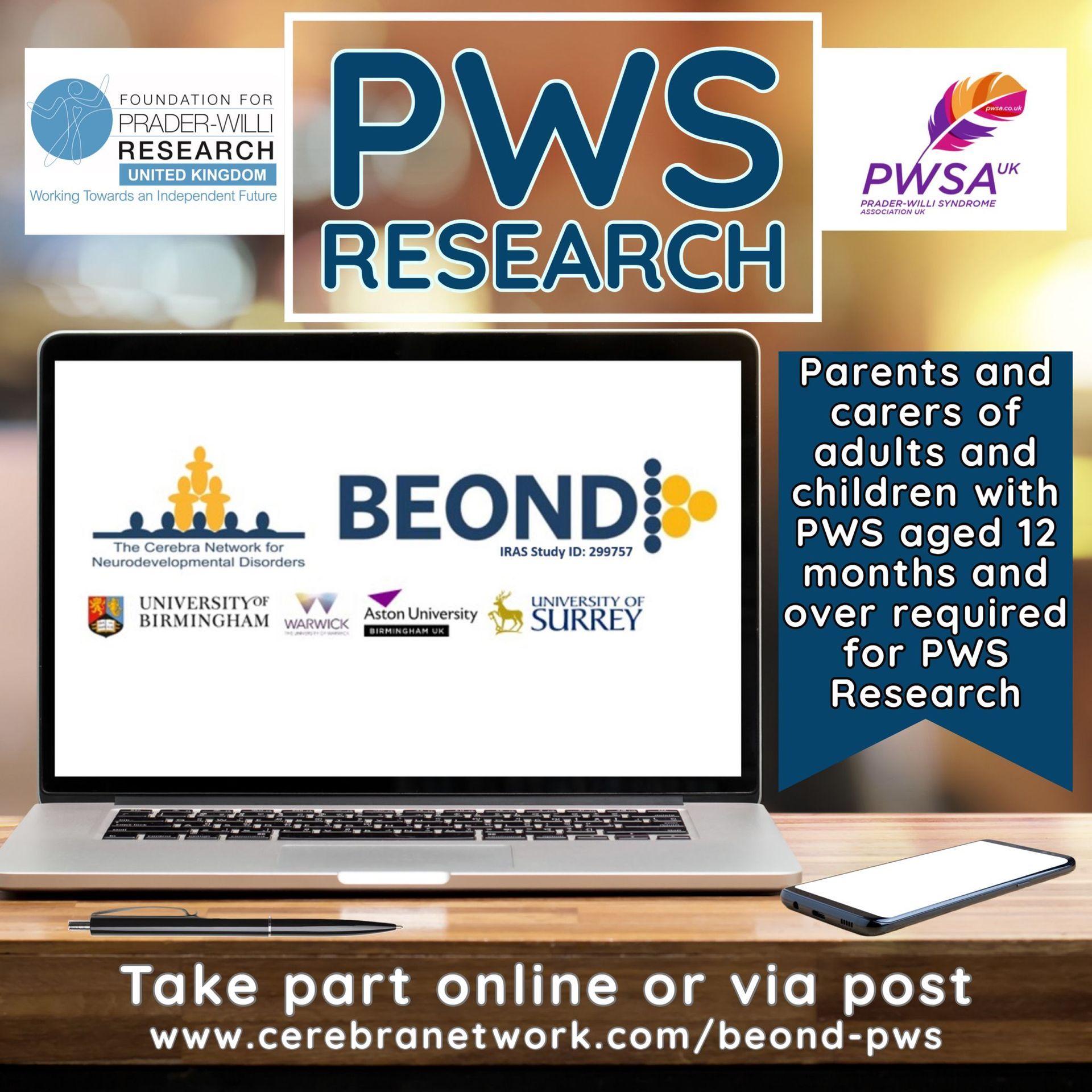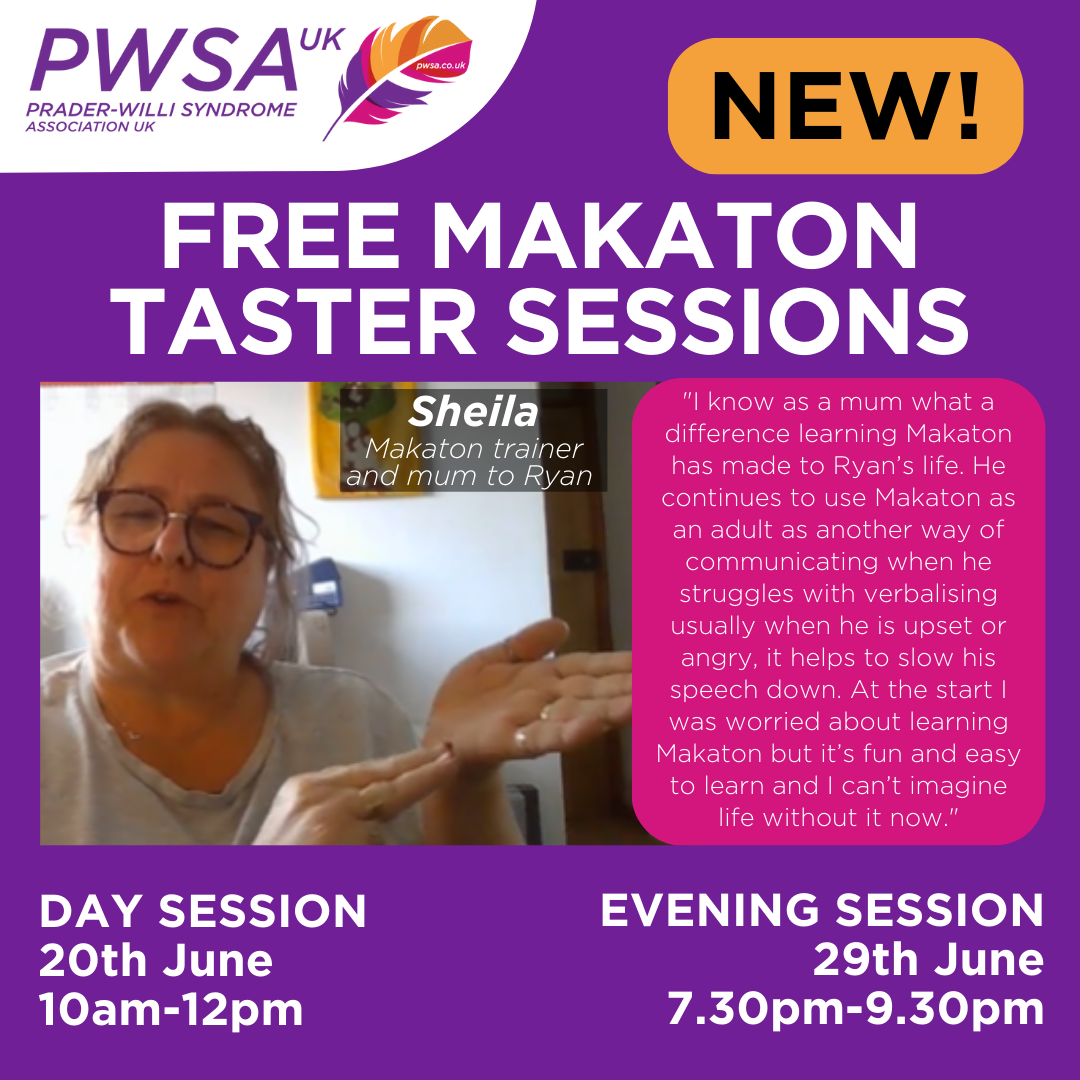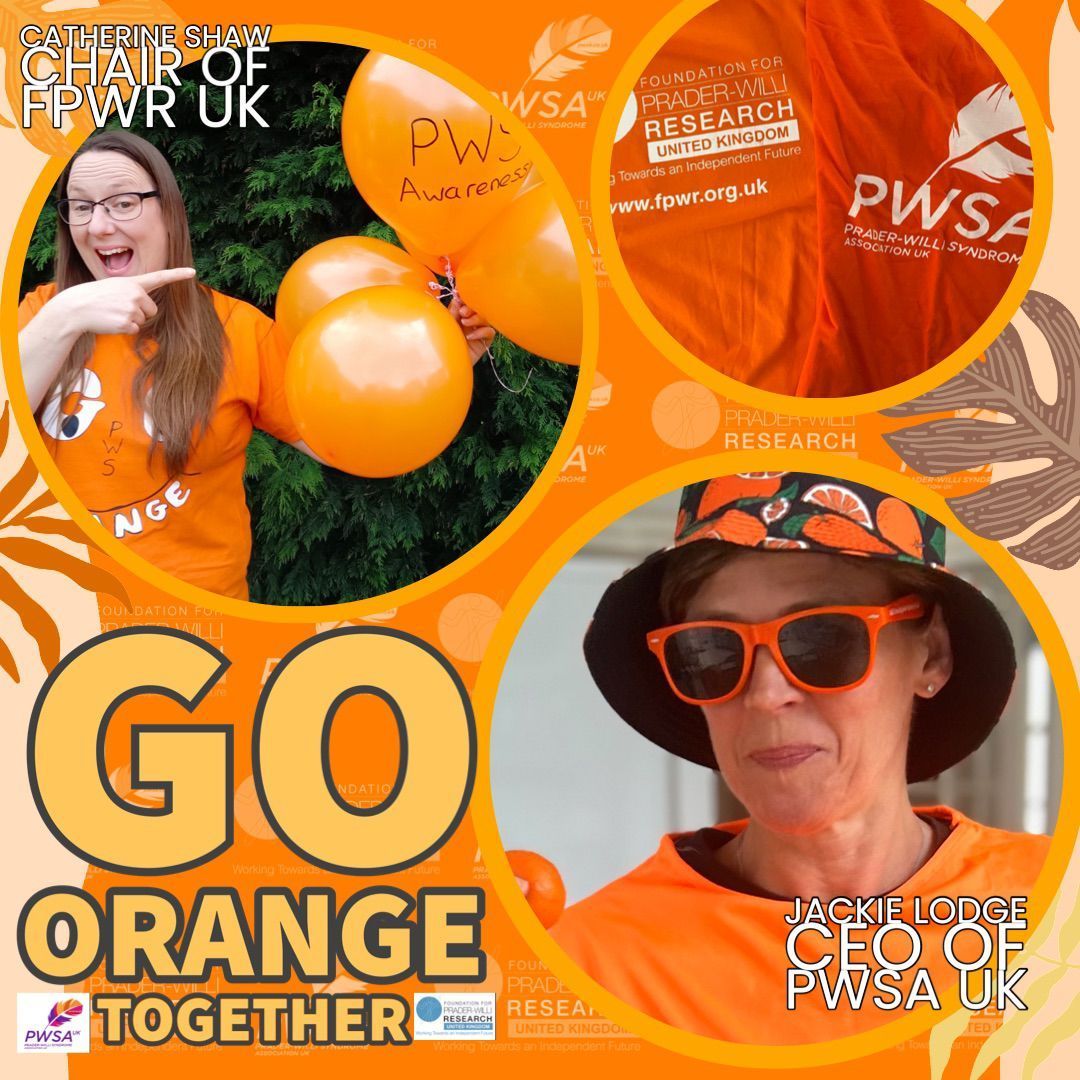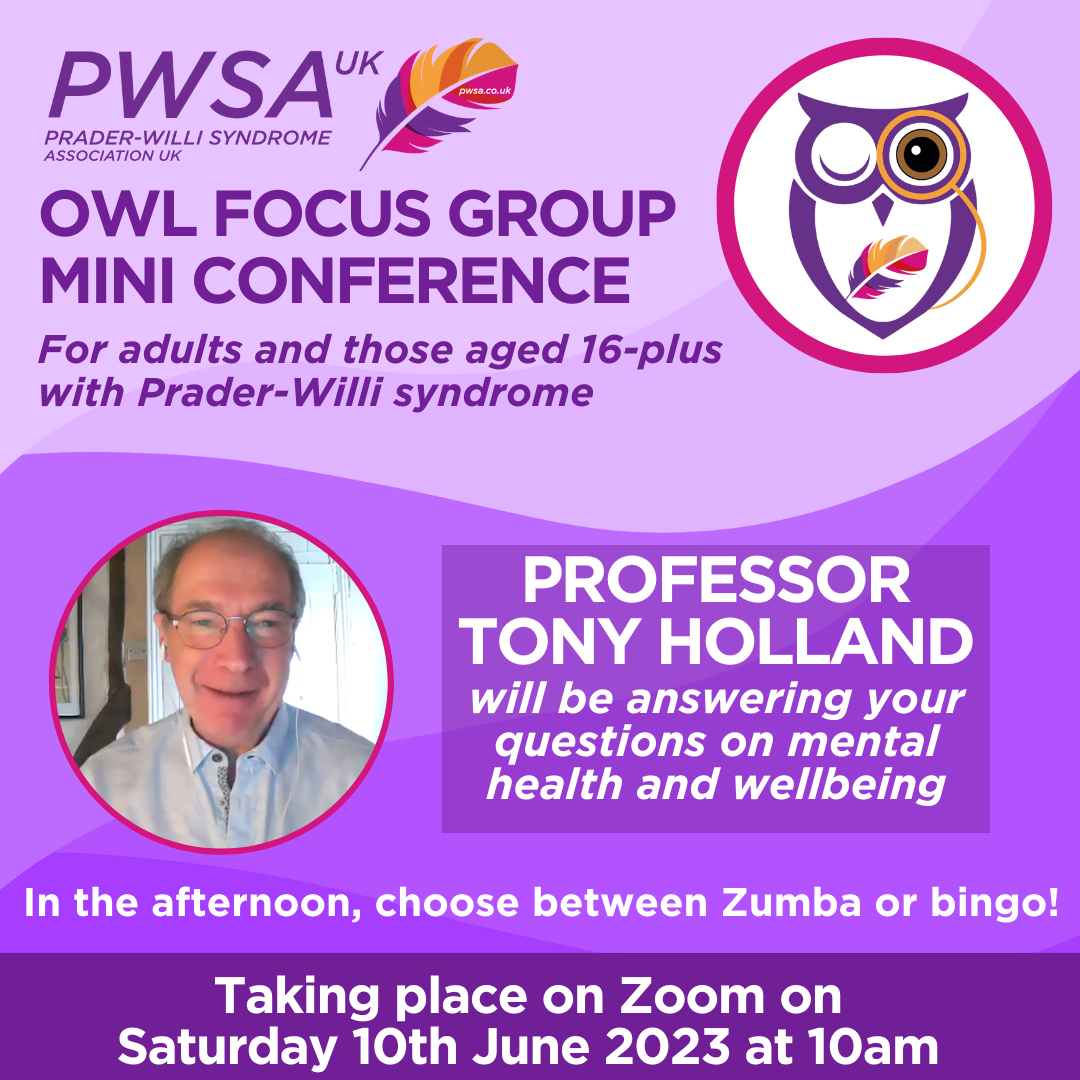New research opportunity for individuals with PWS (UPDATED)
JHorsfall • 28 October 2021
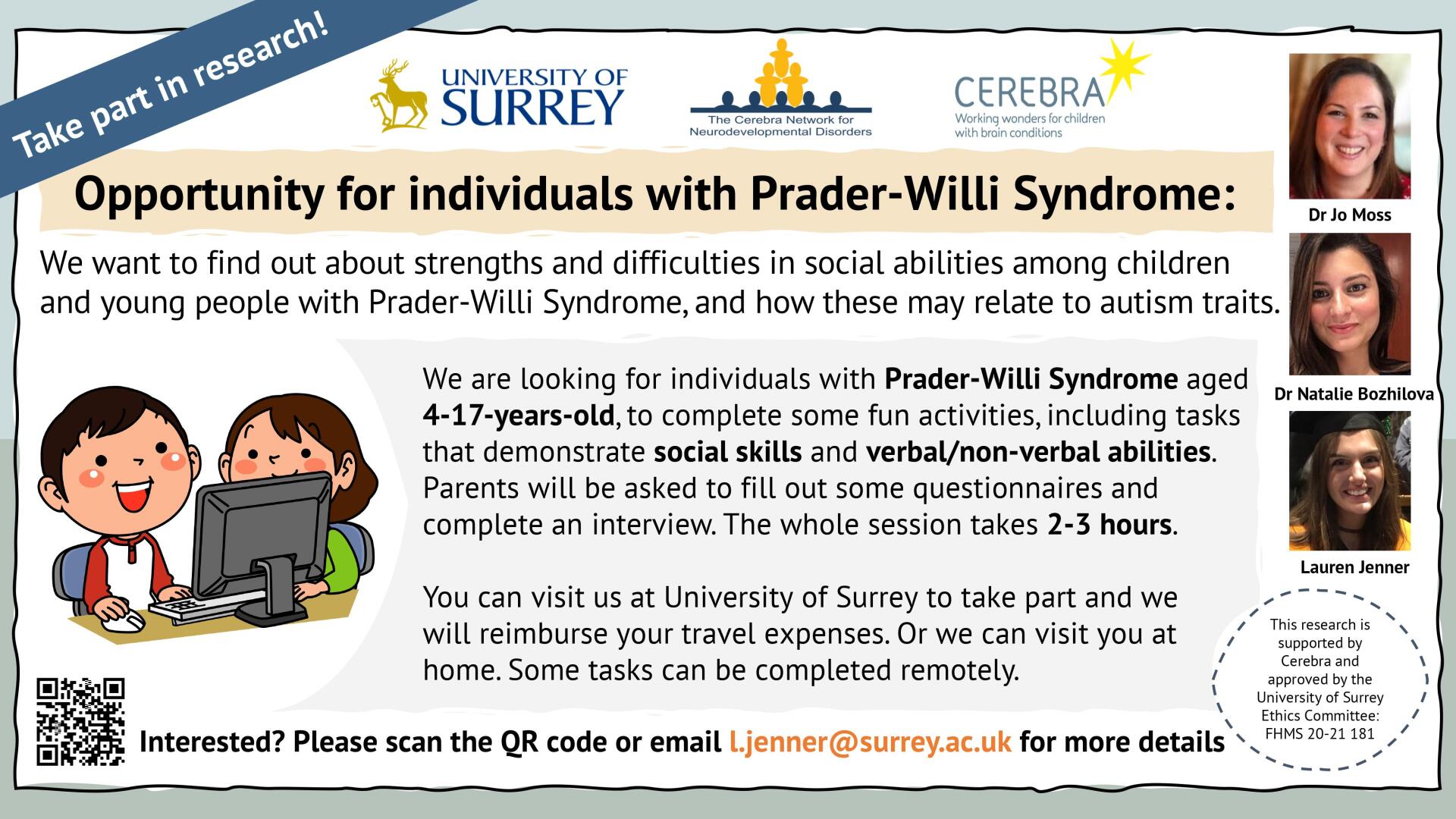
THIS ARTICLE HAS BEEN UPDATED TO REFLECT THE FACT THAT THIS STUDY HAS NOW BEEN EXTENDED TO INCLUDE 19-YEAR-OLDS
The University of Surrey is inviting parents and carers of children or young people with PWS to take part in a research project.
This project forms part of the Cerebra Network for Neurodevelopmental Disorders’ multi-site research collaboration across University of Birmingham, Aston University, University of Surrey, and University of Warwick.
The research focuses on understanding how individuals with genetic syndromes process social information from the world around them, if this differs from typical development, and whether this is related to the presentation of autistic traits. This research is funded by Cerebra and the Faculty of Health and Medical Sciences, University of Surrey.
What is this particular study about?
This study is interested in finding out how individuals with Prader-Willi syndrome process and understand social information such as faces, eyes and emotions. The research team would also like to know how social information processing relates to observable social behaviour skills that are central to navigating day to day interactions in individuals with Prader-Willi syndrome.
Since some individuals with Prader-Willi syndrome also meet the criteria for autism, the researchers are also interested in whether individuals with PWS with and without autism process social information in a way that is similar to or different from autistic individuals without a genetic syndrome.
It is hoped that this work will lead to improved understanding of the social-cognitive strengths and difficulties that are characteristic of individuals with Prader-Willi syndrome, those with other genetic syndromes associated with intellectual disability and autistic individuals with and without a genetic syndrome.
The research team is looking for children and young people with Prader-Willi syndrome (with and without autism), aged 4-19 years old.
What does the research involve?
• Tasks and activities that demonstrate a person’s social skills, verbal, and non-verbal abilities.
• Eye-tracking assessments which show where an individual is looking on a screen, providing information about what that individual finds interesting.
• Parents will be asked to fill out some questionnaires and complete an interview over the phone
Testing will be completed remotely wherever possible. Remote testing sessions can be conducted over multiple short test sessions. Overall, the whole study will take approximately two to three hours to complete, although may take longer to account for rest breaks for children taking part. The team will try to complete any face-to-face testing within one visit.
How to get involved
Please contact Lauren Jenner at l.jenner@surrey.ac.uk
for further information, including if you have any questions or would like to discuss the study in more detail.
The research team will arrange at appointment at your convenience and will pay travel expenses if you choose to visit the University of Surrey for the study. Alternatively, they can also visit you at home, school or another place that is convenient for you. Researchers will be adhering to COVID-safe guidelines.
CONTACT
Postal correspondence address:
Prader-Willi Syndrome Association UK
C/O Metcalf’s Commercial Decorators
3 Deer Park Road
Moulton Park
Northampton
NN3 6RX
Phone: +44 (0)1332 365676
Email: admin@pwsa.co.uk
Registered Charity number
England and Wales: 1155846 Scotland: SC053700
© 2025
All Rights Reserved | PWSA UK
Site design and build by Initiate Creative

